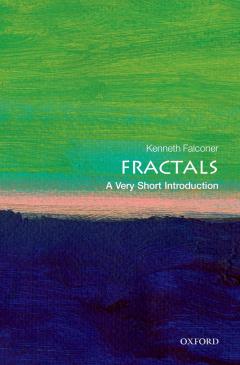Many are familiar with the beauty and ubiquity of fractal forms within nature. Unlike the study of smooth forms such as spheres, fractal geometry describes more familiar shapes and patterns, such as the complex contours of coastlines, the outlines of clouds, and the branching of trees.
In this Very Short Introduction, Kenneth Falconer looks at the roots of the 'fractal revolution' that occurred in mathematics in the 20th century, presents the 'new geometry' of fractals, explains the basic concepts, and explores the wide range of applications in science, and in aspects of economics.
This is essential introductory reading for students of mathematics and science, and those interested in popular science and mathematics.
ABOUT THE SERIES: The Very Short Introductions series from Oxford University Press contains hundreds of titles in almost every subject area. These pocket-sized books are the perfect way to get ahead in a new subject quickly. Our expert authors combine facts, analysis, perspective, new ideas, and enthusiasm to make interesting and challenging topics highly readable.

